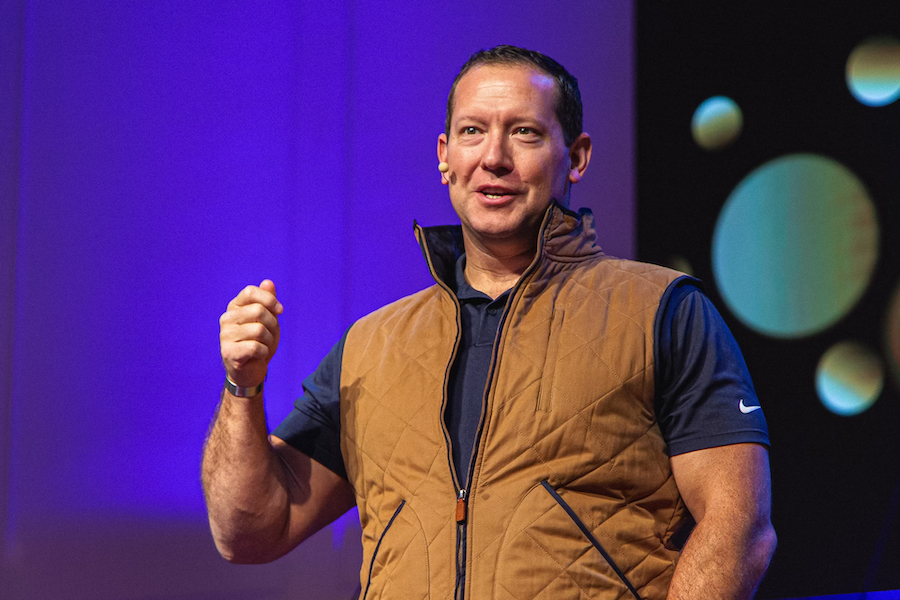Ministry in paradise
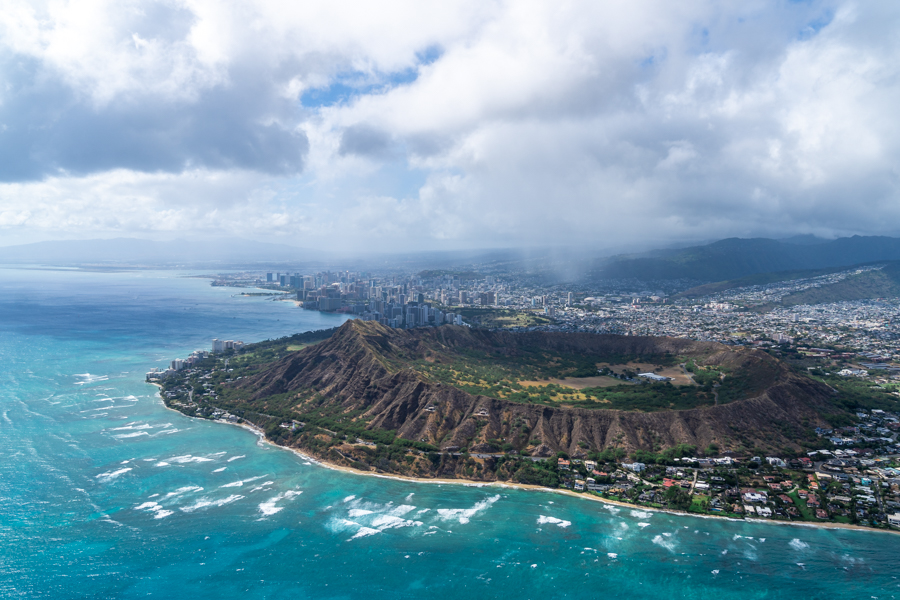

Sitting on a surfboard in the Pacific Ocean having a Gospel conversation with a new friend, talking theology with a fellow pastor, or praying while waiting for the next wave were common experiences for Chris Martin (‘20) while he pastored on the Hawaiian island of Maui.
“I can’t tell you how many times sitting out on the board I thought to myself, ‘You know, this is probably one of the most unbelievable prayer meetings I’ve ever had in my life.’ It was one of the most awesome disciple-making settings,” says Martin.
“You sit out there and talk. Sure enough, here comes the wave. You know the rule: stop the conversation and you pick it up after you paddle back out.”
“Yeah, surfing is good.” It’s easy to see why many pastors considering it from afar may long for ministry on the Hawaiian Islands.
“Sometimes people think, ‘Yeah, I could do that.’ And I know they mean well. ‘Surfing for Jesus.’ I’ve heard that many times, as well, and that’s okay.”
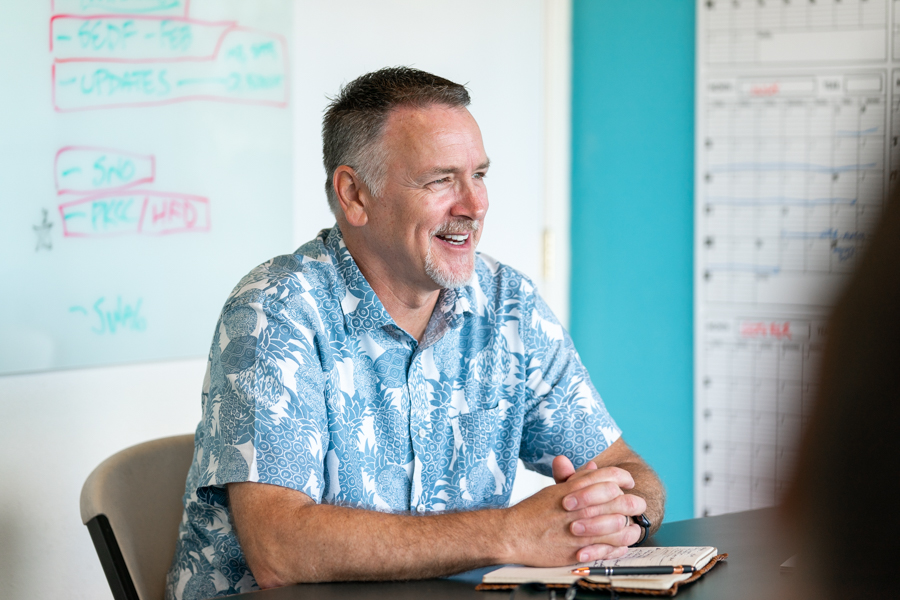
For Martin, who has ministered in Hawaii since 2005, first as a pastor on Maui, and since 2014 as executive director of the Hawaii Pacific Baptist Convention, ministry in paradise is much more than a tropical climate, outdoor activities, and vacation setting every day of the year. The “ugly side of paradise” is fraught with homelessness, the high cost of living, human trafficking, and other social, moral, and economic effects of a vacation destination visited by millions every year.
And the varied cultural and ethnic settings on the eight islands of Hawaii are multiplied by the diversity found throughout the rest of the territories crossing the great expanses of the Pacific Ocean that are represented by the churches cooperating through the Hawaii Pacific Baptist Convention.
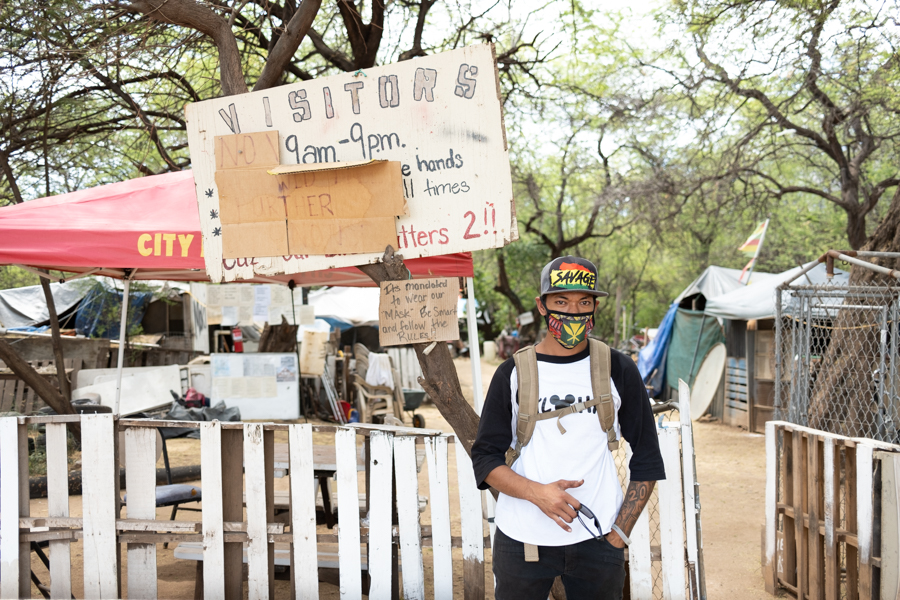
Martin explains the congregations in Hawaii, plus those in the South Pacific and parts of Asia, encompass nearly 12 million square miles. “Although 99 percent of it is water, we still cover a huge territory,” he says. By comparison, the continental United States covers 3.8 million square miles. Also vast is the population of the region—125 million people, just in the metropolitan areas served by the HPBC churches.
“The number of people we have around our churches is incredible,” says Martin, noting that less than one percent are evangelical Christians. “I think our churches are strategic—they are positioned well, and they are making an impact.”
“I’ll just be honest. Our guys could be pouring 100 percent into just reaching their communities, just reaching Hawaii,” he adds. “But being born of missional roots keeps us focused with missional eyes and that is exciting to me, because our folks don’t look at, ‘Well, this is my area.’ They take it all on. The pandemic set us back a little bit, but it’s good. Out in front of us, it’s good, and I couldn’t be more thankful for what God’s doing in our churches.”
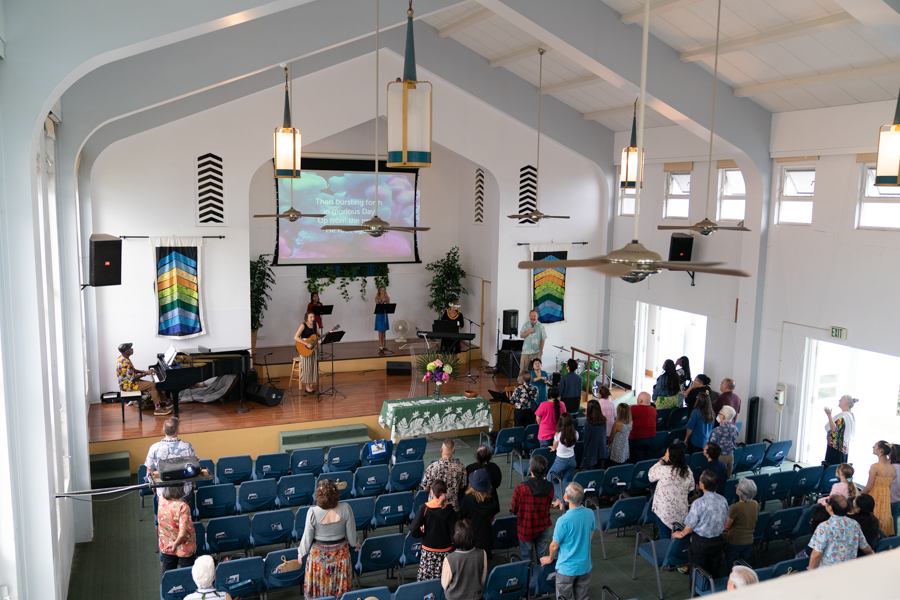
Currently four congregations in Malaysia, Vietnam, Japan, and South Korea are petitioning to join the HPBC, further expanding the reach of the state convention that had its beginnings when Southern Baptist work in Hawaii began after World War II.
Of the 161 churches in the HPBC, 80 are on the Hawaiian island of O’ahu. Asian churches constitute about 10 percent of the total number of churches, and they are contributing about 10 percent of the Cooperative Program budget, Martin says.
“These churches are involved, they’re engaged, their members are studying at SBC seminaries. They come to our annual meetings and serve on our committees, and they’re involved across the South Pacific and Asia.”
The expansion of the territory of the HPBC came in 1995 as congregations in the American territories of the Pacific—American Samoa, Guam, and the Commonwealth of North Marianas Island—had no connection to the Southern Baptist Convention. More recently, international Baptist churches ministering to English-speaking expatriate communities in places like Okinawa, Japan, and Seoul, South Korea, are connecting with the HPBC.
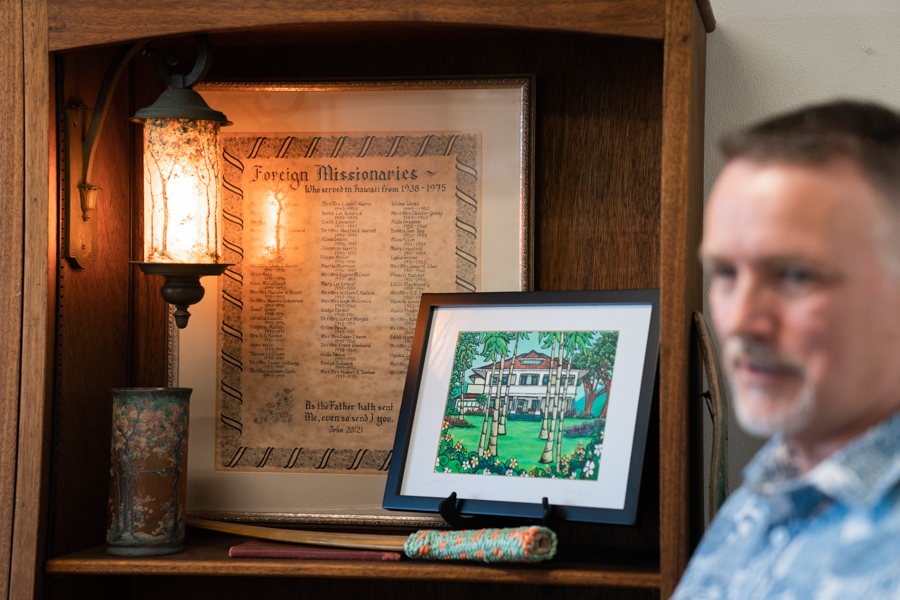
The rich cultural context of the churches in the HPBC is the missionary context Martin thought he would be serving in when he was called to ministry at 34 years of age while working in the paper industry in St. Mary’s, Georgia. However, when he soon after enrolled for classes for the first time at New Orleans Baptist Theological Seminary, he felt led to switch from missions to pastoral ministry studies.
After pastoring in Louisiana while in seminary and afterwards at a church in Cedar Key, Florida, a vacation spot with a somewhat transient population in the Gulf of Mexico similar to Hawaii, God called Martin to Maui for a “wonderful” pastoral ministry he didn’t want to leave when he reluctantly agreed to apply for the post to lead the HPBC. So, many years after believing he was called to missions, Martin is living as a missionary leading Hawaii Pacific Baptists, he says.
“It wasn’t quite what I thought it was going to be, but yeah, this is mission work, and I love it. … Everywhere I go, I’m in the mission field, and I enjoy it. I really, really do.”
A major need for the HPBC is leadership development, Martin says, noting conversations with Southwestern Seminary to bring more theological education opportunities to the HPBC.
Martin praises the leadership of President Adam W. Greenway (‘02) and other leaders at Southwestern Seminary.
“I’m extremely excited about the current direction of the seminary. I think that Dr. Greenway’s leadership is opening new doors for the seminary in ways that I think will provide for students,” he says, calling the institution’s leadership “forward thinkers.” The administration is “effectively leading now, but they’re prepared for the future, and I think that’s exciting. It gives me a confidence that whenever I go to someone and say, ‘I recommend Southwestern Seminary,’ I feel I know what they’re going to get, and I am very confident in that.”
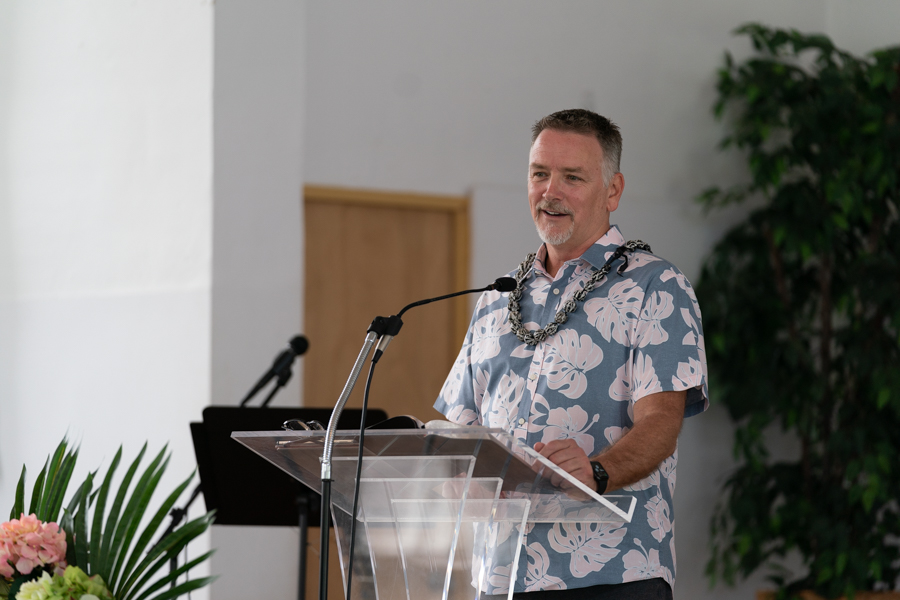
Leadership development is a significant challenge, he says.
“The raising of local leaders to be able to serve our churches” is one of those challenges, he says, because “for far too long we’ve had a dependence on the mainland,” noting he is an example of such. “Leadership development is a huge issue and I think God’s giving us the opportunity at this moment to turn the corner on that and to see that change.”
Martin points to his own experience at Southwestern Seminary as a 2020 PhD graduate of the World Christian Studies program in the Roy J. Fish School of Evangelism and Missions as an example of how theological education can impact his convention.
“The program helps expand your understanding of the depth of the integrity of Scripture and the truth of theology and the power of the Word of God, while being able to engage—that you’re able to communicate effectively and to be able to raise up leaders. … I think it’s an incredible program,” he says, praising Professor of Evangelism Matt Queen, his “mentor” and “dear friend.” Queen has ministered often in the HPBC and is “loved” by the churches, Martin says.
Martin says the World Christian Studies program was “extremely beneficial for me because it immediately helped me in my own setting. But [with] the [cultural] change that’s taken place on the mainland, it’s needed for us to be able to wrap our heads around reaching cross-culturally.”
Indeed, Martin says that Hawaii Pacific congregations are a model of ethnic diversity that have much to offer the rest of the Southern Baptist Convention in the mainland United States, which is experiencing similar changes. “I’m able to send, from paradise, men, women, pastors, leaders, churches, equipped to do ministry that really makes a difference in the rest of the U.S.”
The ethnic diversity of the HPBC is one of the reasons why Martin is so eager for more Southern Baptists to visit Hawaii and other locations in his convention.
“We can engage so many different cultures that you can go back and have a different view. You can do that in the United States mainland, but I think out here the setting is just different enough to catch the attention a little bit better,” he says. “I think Southern Baptists are going to have to embrace ethnic diversity.”
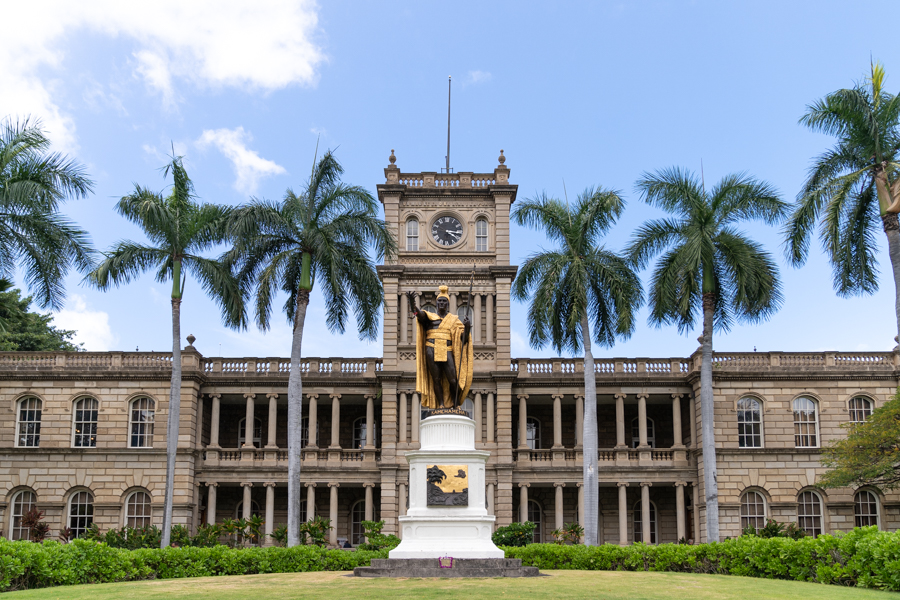
Martin says Southern Baptists also need to recognize that fewer and fewer people in the mainland United States operate from a biblical worldview or even basic biblical knowledge, pointing to a co-worker in St. Mary’s, Georgia, years ago who was unfamiliar with the biblical characters of Shadrach, Meshach, and Abednego.
He also related the story of a man who approached him after a sermon, while pastoring in Maui, who asked, “What does it mean when you say somebody’s name and numbers after it?” not understanding his references to biblical passages.
“To embrace that challenge out here I think is the best part of ministry. You’re countercultural, but you’re not militant. You’re embracing it and you’re allowing it to help others understand Christ, then see the Gospel make that impact. I think that’s just amazing,” he says.
While Hawaii is largely a secular society, there remains a level of respect for pastors and religion, Martin says, citing as an example activity that is paused on the beaches when congregations do beach baptisms—and some observers even applaud.
“The Polynesian culture and the Asian culture, they both are receptive to ministry. They don’t see it negatively. For our churches, they’ve got incredible opportunities to engage their communities and to explore opportunities and actually be welcomed,” he says.
Martin also says visitors to the HPBC congregations will understand better the challenges being faced by their fellow Southern Baptists.
“The perception of paradise is totally off track when it comes to the difficulty of ministry in Hawaii or the areas of our convention,” he says, relating what he has heard from visitors. “I’ve heard that from denominational leaders. I’ve heard that from entity leaders. I’ve heard it from a lot of folks who say, ‘This trip changed my understanding of what you’re doing.’ That’s the reason I try to get more and more out here as best I can.”
Many people move to Hawaii because they see it as paradise and “their last thought is about God. It’s tough,” Martin acknowledges.
“I think one of the greatest opportunities to make an impact is when that paradise crashes in people’s minds. They did come out here expecting to get away from everything. And you can surf every day if you want to or swim every day or hike every day or bike every day. There’s a lot to enjoy. But for a lot of folks, when things begin to really crash and they turn to those who are steady, there’s an incredible opportunity for the Gospel,” Martin says.
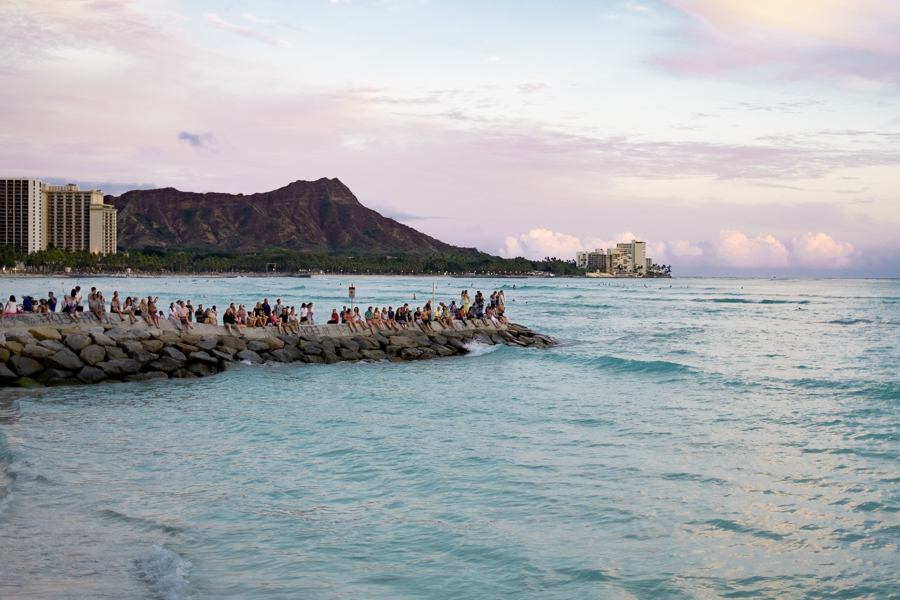
In the face of all the distractions available in Hawaii, Martin praises the faithfulness of the HPBC congregations.
“When you do get down time a lot of people don’t think about the church or serving the church, but our church members, they do and they’re faithful in that. I know that on a Sunday morning, especially those with kids, there will be ball teams across the street from our church on the ball field. You hear that noise. … But our church members are faithful, and I’m thankful for that.”
While some may not see it in some of the metrics, Martin says, “Our churches are doing incredible work—statistically, it’s hard out here.”
He says his “number one job” is to empower the HPBC staff “to do everything that they can do to serve our churches. And our collective goal is to see every church be positioned to be healthy, to be effective in their place of ministry.”
“I’m doing my best to give our churches every chance to be healthy, be successful, be effective. And that’s a good place to be.”
Martin praises his wife, Wendy, “my number one everything,” for her “ministry of presence” alongside him ministering to Hawaii Pacific Baptists. She is so well-loved that he has been chastened at times for failing to bring her along to visits across the HPBC.
“It’s a good time to be a Hawaii Pacific Baptist, in my opinion. We’ve got a bright, bright future.”
James A. Smith Sr. is executive editor of Southwestern News.
Chinsop Chong (’18) is staff photographer of Southwestern News.
